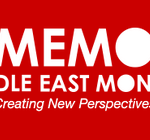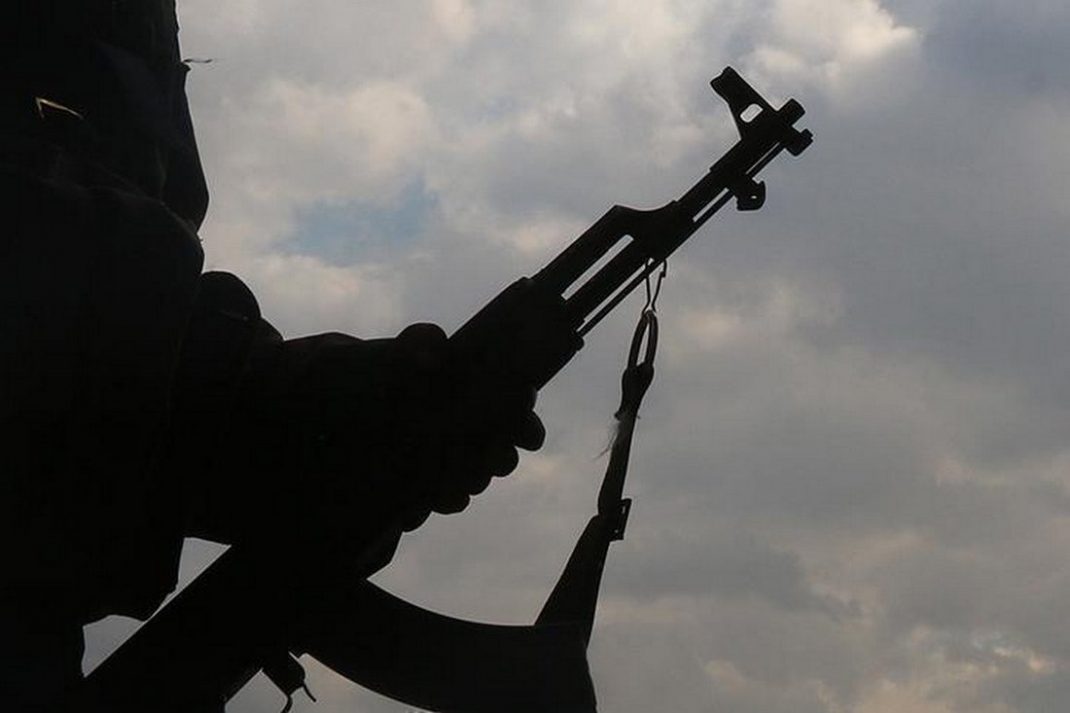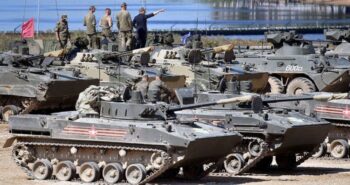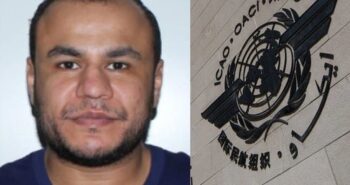By Noha El-Hennawy
 Gunmen killed two women and three children of the same family while they were driving on a highway near the capital, Tripoli, less than a week after an airstrike slammed into a house killing at least three civilians, a health official said Thursday.
Gunmen killed two women and three children of the same family while they were driving on a highway near the capital, Tripoli, less than a week after an airstrike slammed into a house killing at least three civilians, a health official said Thursday.
The city has been the scene of fighting between rival militias since April. A U.N.-supported but weak government holds the capital, but the self-styled Libyan National Army — which is associated with a rival government in the country’s east — is trying to seize it.
Abdel Rahman al-Tamimi, his wife, sister and three children were traveling Wednesday evening to the capital from their hometown of Aziziya, south of the city, when unknown militants opened fire on their car, Malek Merset, a health spokesman with the U.N.-backed government told The Associated Press.
The family was headed to the capital, where the children, ages 3 to 6, were expected to receive vaccination shots, Merset said.
It wasn’t immediately clear who was behind the attack. However, LNA spokesman Ahmed al-Mesmari blamed the attack on militias allied with the Tripoli-based internationally recognized government.
“This is one of the systematic crimes carried out by militias against civilians,” he wrote on his official Facebook page. “In order to eradicate them and avenge the murdered, the battle shall continue.”
Earlier this week, the Tripoli-based Government of National Accord held the LNA responsible for the shelling of a civilian residence that killed at least three civilians and the wounding of two, including children.
The LNA denied the accusation saying that it targeted a military camp that the Tripoli militias used as an “operations room.”
The battle for Tripoli has stalled in recent weeks, with both sides dug in and shelling one another along the city’s southern reaches. The months of combat have killed hundreds of people and displaced thousands.
The fighting threatens to plunge Libya into another bout of violence on the scale of the 2011 conflict that ousted and killed longtime dictator Moammar Gadhafi.
Separately, Libya’s coast guard said that it has rescued 82 Europe-bound migrants, including 11 women and eight children off the country’s Mediterranean coast.
The rubber boat carrying migrants from Syria, Bangladesh, Sudan and many other African countries was stopped on Wednesday 40 miles (64 kilometers) to the north of the western town of Zawiya, according to a statement released on Thursday by Libya’s navy.
Libya has emerged as a major transit point for migrants fleeing war and poverty to Europe. In recent years, the European Union has partnered with the coast guard and other Libyan forces to try to stop the dangerous sea crossings.
Rights groups, however, have criticized those efforts, saying they’ve left migrants at the mercy of armed groups or confined in squalid detention centers rife with abuses.
Also on Thursday, the U.N. Support Mission in Libya called for the immediate release of lawmaker Seham Sergiwa, who was abducted in mid-July by gunmen from her house in the eastern city of Benghazi — the Libyan National Army stronghold.
“We will continue to lift our voices to demand her release and that those responsible for her violent abduction be held accountable,” the UNSMIL statement said.
Since her kidnapping, Libya’s eastern authorities have failed to reveal her whereabouts.
The Tripoli-based government, as well as some members of her family, accused forces loyal to Khalifa Hifter, the LNA commander, of being behind the 56-year-old parliamentarian’s disappearance.
Although a member of the east-based parliament known for its loyalty to Hifter, Sergiwa was a vocal critic of the Libyan National Army offensive on Tripoli.
In Thursday’s statement, the UNSMIL condemned Sergiwa’s kidnapping as an attempt “to silence one of Libya’s prominent female voices and to intimidate other women seeking to participate in the country’s political life.”
Several rights groups have previously said that Libyan militias on all sides of the conflict have committed human rights abuses, including abducting activists, journalists and rights activists.
***
Gunmen raid Libya cafes to stop unmarried couples socialising
 Gunmen raided two trendy seafront cafes in Libya’s capital of Tripoli earlier this month to curb social freedom and impose a hardline interpretation of Islamic laws on visitors, witnesses said.
Gunmen raided two trendy seafront cafes in Libya’s capital of Tripoli earlier this month to curb social freedom and impose a hardline interpretation of Islamic laws on visitors, witnesses said.
The gunmen attempted to banish unmarried coupies and impose a strict religious code, Reuters reported.
The identities of the men have not been confirmed, but the move reflects the rise of hardline Islamists and Salafists among militias that the authorities rely upon on to maintain order.
Both the cafes that were targeted are in the upscale Hay Aldalus neighbourhood, just west of central Tripoli.
The raids have added a fresh layer of uncertainty to the city that is currently under assault by General Khalifa Haftar and his allies who aims to win power nationally.
A climate of fear
The raids are creating fresh uncertainty in a city that has faced a myriad of problems in recent years.
“A group of armed men stormed the cafe with their guns and started questioning the men, to see if they were accompanied by a woman who was a close relative, or by a friend,” a witness told Reuters on condition of anonymity, speaking of the incident on Oct 6 at Eleanor café.
“Men who were sitting with (female) friends were taken out of the cafe by the armed group … they took them into their vehicles for a couple of minutes then released them,” the witness added. “The men came in again to pay the bills and left.”
At the other cafe on the same stretch of seafront, more than 30 masked gunmen in military uniform earlier this month. They asked to see marriage certificates and told women they were to be accompanied by a brother or their husband. “I was very scared,” the witness said. “After five minutes the cafe was empty. Even the men left.”
The gunmen said they wanted the family sections of the cafes shut down. Designed for women and their relatives, these sections are also frequented by single women and couples.
“They said the next time, if we find something like this, we’re going to close it,” said the witness.
These threats have prompted at least two nearby cafes to post messages on Facebook saying they would no longer admit single men or unmarried couples, despite there being no law against such mixing in Libya.
A women’s rights activist said that the cafe raids showed that armed groups could still act with impunity in Tripoli.
They also reflected a backlash by religious radicals against the increasing presence of women in public spaces, she said. “They really want to push back women to their houses and to stop these social changes happening.”
Twitter users opposed to the raids launched the hashtag: “No to moral and religious guardianship, yes to a civilian state.”
The raids sparked criticism for against the Special Defence Force (SDF) on social media.The SDF is Tripoli’s most powerful Salafist-leaning group that labelled itself as the capital’s primary anti-crime and counter-terrorism force.
The SDF however denied its forces had stormed the cafes, while the other Salafist-leaning Nawasi brigade could not be reached for a comment.
Continued chaos
Libya has been mired in chaos since a NATO-backed uprising that toppled and killed dictator Moammar Gaddafi in 2011.
The Government of National Accord (GNA) is in control of Tripoli and uses these armed militias to maintain law and order, even though they operate largely autonomously.
General Haftar says he seeks to bring the militias under his control and rid western Libya of radical Islamists. However, his forces also include Salafists within their ranks.
***
Gunmen raid Libya cafes to enforce strict social norms
 It has been reported that gunmen have raided two trendy seafront cafes in the Libyan capital of Tripoli this month to deter the free mixing of unmarried couples and impose strict religious social codes.
It has been reported that gunmen have raided two trendy seafront cafes in the Libyan capital of Tripoli this month to deter the free mixing of unmarried couples and impose strict religious social codes.
According to Reuters, the identity of the assailants is unconfirmed, but the incident illustrates the latest example of the rise of Salafism in post-Gaddafi Libya which has alarmed civil society advocates as a setback for social reform.
“A group of armed men stormed the cafe [on 6 October) with their guns and started questioning the men, to see if they were accompanied by a woman who was a close relative, or by a friend,” explained Eleanor, an eyewitness.
Another witness, speaking on condition of anonymity, pointed out that: “Men who were sitting with [female] friends were taken out of the cafe by the armed group… they took them into their vehicles for a couple of minutes then released them. The men came in again to pay their bills and left.”
At another cafe on the same seafront stretch, more than 30 masked and armed men in military uniform swept in one morning earlier this month.
They asked to see marriage certificates, telling women that they had to be accompanied by their husband or a brother. “I was very scared,” said a witness. “After five minutes the cafe was empty.
Even the men left.” The gunmen also wanted the café’s family section, designated for women and their relatives or single women, to be shut down.
Both cafes targeted are in the upmarket Hay Andalus neighbourhood, to the west of central Tripoli. Twitter users opposed to the raids launched the hashtag “No to moral and religious guardianship, yes to a civilian state”.
Some users mentioned that it was not a problem specific to Tripoli but has happened across Libya.
Salafism in Libya, specifically its Madkhali interpretation — named after Sheikh Rabee Al-Madkhali, a Saudi theologian whose followers adhere to an ultra-conservative but politically quietist ideology —has grown rapidly in Libya in recent years.
Tolerated by Muammar Gaddafi prior to the 2011 uprising because of its political subservience and only a minor actor immediately after his regime’s fall, it has gained a wide following since the current conflict began in 2014 and has entrenched itself in key institutions.
In Tripoli, Madkhali fighters are well-represented in major armed groups that have worked with the internationally-recognised Government of National Accord to bring security to the capital.
___________




